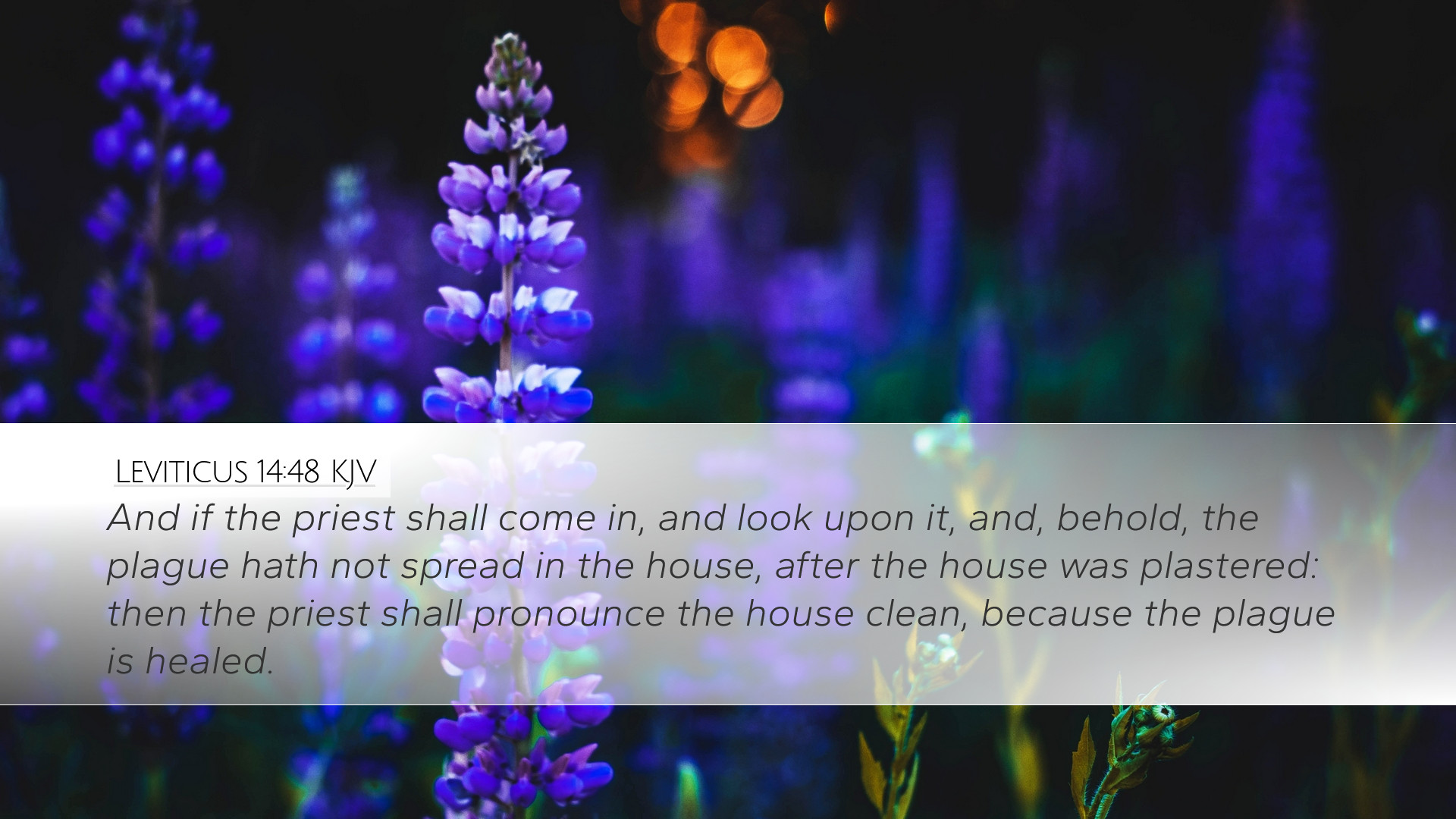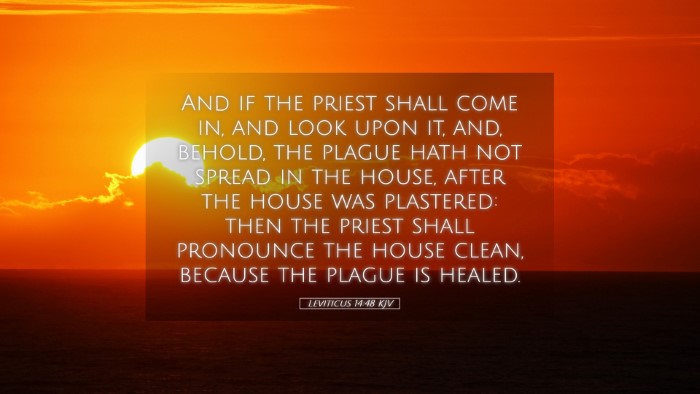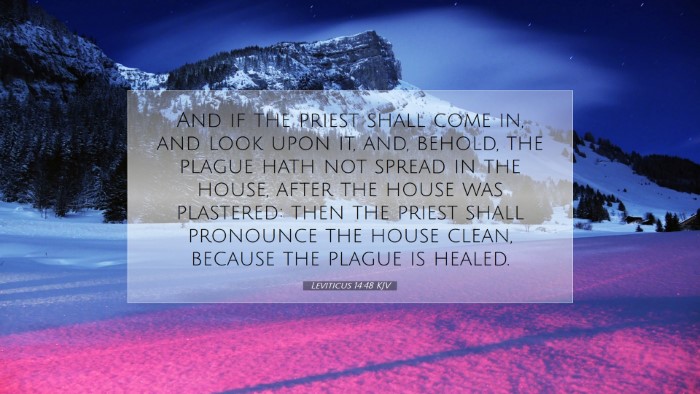Commentary on Leviticus 14:48
Bible Verse: Leviticus 14:48 - "But if the priest comes in, and sees the plague, and, behold, it be not in the walls of the house, nor in the stones of the house, but it be in the mortar."
Introduction
The verse in Leviticus 14:48 serves as a part of the larger discourse regarding cleansing and the ritual of dealing with leprosy in houses. This passage both reflects the concern for purity within the community and provides guidelines for the priests who serve a fundamental role in maintaining the sanctity of the Israelites' dwelling places.
Contextual Background
Leviticus is a pivotal book in the Torah, emphasizing holiness and the laws that govern the Israelite community. In this chapter, the focus is on the regulations surrounding infectious diseases, particularly tzaraath, a condition often misconstrued as leprosy. The distinction of what constitutes a clean or unclean status is essential, particularly in maintaining communal purity.
Analysis of Leviticus 14:48
This verse follows a series of instructions for priests when they encounter signs of a plague in a house. The importance of the priestly examination cannot be overstated as it represents a spiritual authority that dictates the community's response to disease.
Priestly Examination
Matthew Henry's Commentary: Henry emphasizes that the role of the priest is critical to identifying true uncleanness. The decision to declare a house clean or unclean profoundly impacts the community’s health and holiness.
Albert Barnes' Notes: Barnes further explains the process of examination by the priest, highlighting that the introduction of plague in a house indicated divine judgment or a need for purification. The priest’s observation was not merely physical but had spiritual implications for the individuals and the community.
Spiritual Significance
Adam Clarke's Commentary: Clarke articulates the notion that the plague in the house symbolizes sin and its effects on the community. Just as the priest assesses the physical condition, there lies an underlying spiritual condition that must be addressed vigilantly in the lives of the people.
- Symbolism of Purity: The plague represents spiritual impurities that can infect the community, requiring active discernment by spiritual leaders.
- Holiness and Community: The health of the community is directly tied to the spiritual state of its members, indicating the importance of communal accountability.
Practical Implications for Ministry
For pastors and theologians, this passage invites reflection on the nature of spiritual care and community health. There is a call for vigilance in the face of spiritual decay, reminiscent of the priest’s duties in Israel.
Matthew Henry highlights: the necessity of a discerning eye among leaders—keeping watch over both the physical and spiritual welfare of their congregation.
Albert Barnes draws attention: to the need for sensitive involvement of the ministry to guide and restore individuals who may be struggling with sin or spiritual ailment, much as the priests guided the people of Israel.
Conclusion
Leviticus 14:48 serves as an essential reminder for leaders within the faith community to engage with both the physical and spiritual dimensions of their congregation. The priest's role in examining and determining purity contains lessons on accountability, community health, and the importance of spiritual vigilance.
In consideration of this scripture, we are reminded of the impact of sin and the necessity of diligent pastoral care. May those in ministry take heart in the call to lead with wisdom, discernment, and compassion, recognizing the potential for healing and restoration within their community.


